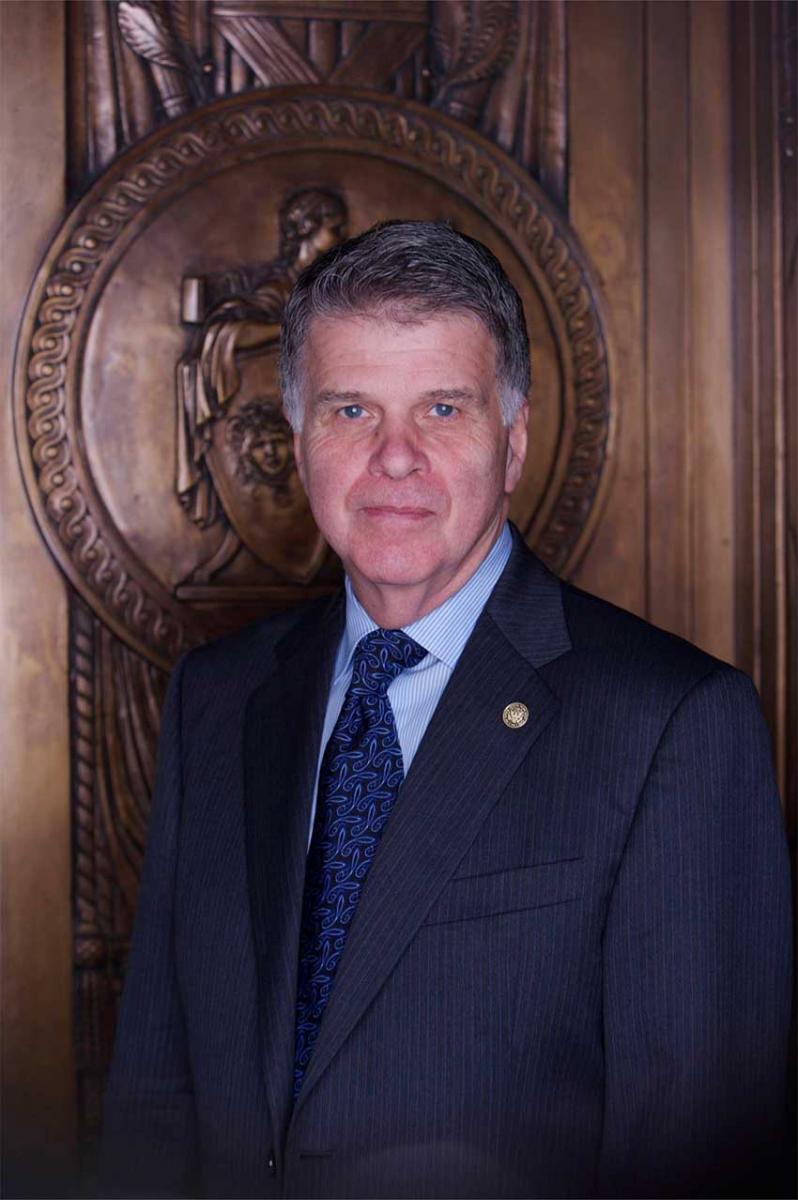
Prepared remarks of Archivist of the United States David S. Ferriero at the Bill of Rights Day Naturalization Ceremony. Washington, DC.
December 15, 2010
The Archivist spoke after Judge Royce C. Lamberth swore in a group of new citizens in a naturalization ceremony.
Good morning. I am David Ferriero, Archivist of the United States, and welcome to the Rotunda of the National Archives. Thank you, Judge Lamberth, for once again taking part in this special ceremony. And most important, congratulations to our new citizens.
You have just taken the oath of citizenship in a much-hallowed setting. This Rotunda is where we keep the nation’s founding documents––the Declaration of Independence, the Constitution, and the Bill of Rights.
They are known collectively as the Charters of Freedom because they are the documents that created our nation and established how we govern ourselves.
And they are on display every day for everyone to come and see for themselves the familiar words they have heard quoted so much and famous signatures just as they were affixed by their owners.
Now, you have joined us as citizens. It is a distinctive status. Upon leaving the Presidency, Harry Truman remarked that he was getting a promotion–– from public servant to citizen.
So congratulations to all of you on your promotion to citizen of the United States of America.
Witnessing ceremonies like this always stirs memories of my own forebears.
I am the grandson of Italian immigrants and great-grandson of Irish immigrants. Shortly after I arrived at the Archives, I used passenger lists to discover that my grandfather, at age 15, arrived in Boston from Naples aboard the ship Commonwealth on March 22, 1903. My grandmother, Antonia Giorgio, also from Naples, arrived on March 8, 1909, aboard the Romantic.
Many Americans have stories like mine, and you too have your own. And you will no doubt remember this day as very special.
As I mentioned, you are in the presence of our nation’s founding documents.
Over to my right is the Declaration of Independence, the same piece of parchment that our Founding Fathers signed that hot summer of 1776 in Philadelphia. They risked their lives, their families’ lives and all they owned in signing it because the King of England viewed them as traitors.
Behind me is the Constitution, which remains the basis on which our federal government is structured.
The Constitution’s Preamble provides the reasons and purpose for the Constitution, and it contains perhaps the most important words in any of our founding documents: “We, The People.” Those three, simple words capture the essence of our democracy.
The Constitution has been amended 27 times. Several of those amendments explicitly extend rights granted in the Constitution itself to individuals who had been excluded from full participation in our democracy when the Constitution was adopted in 1787.
There are amendments to abolish slavery, make former slaves U.S. citizens, and grant them the right to vote. There is the amendment to grant women the right to vote and another granting 18-year-olds the right to vote. Yet another amendment provides that the people, not their state legislators, will choose their U.S. senators.
It is this document, and its amendments, upon which the United States Supreme Court has based so many landmark decisions that have changed the course of American history.
To my left is the Bill of Rights, the first 10 Amendments to the Constitution. They spell out the basic personal rights and freedoms that are guaranteed to every American and which you all exercise every day --- including freedom of speech, religion, and the press; the right to petition the government; the right to bear arms; and the right to due process of law and a speedy and fair trial.
I hope you all get a chance to examine these three documents closely before you leave today.
And I urge you to exercise your newly granted rights and responsibilities and join in the American debates over the issues of the day.
With us today is an individual who, like all of you, was not born in the United States, but as a naturalized citizen, has been an active and important participant in our democracy.
Elaine Chao was born in Taiwan and came to the United States with her parents at the age of 8—not able to speak a word of English. But she was a fast learner.
She graduated from Mount Holyoke College in Massachusetts, then received a master’s degree from Harvard Business School. She also studied at MIT, Dartmouth, and Columbia.
Here in Washington, she has held a variety of important positions in and out of government.
In the Reagan Administration, she was Deputy Administrator of the Maritime Administration and chair of the Federal Maritime Commission. In the first Bush Administration, she was Deputy Secretary of Transportation and Director of the Peace Corps.
During the most recent Bush Administration, she was Secretary of Labor for President Bush’s full eight-year tenure. In this capacity, she was the first woman of Asian descent to serve in a President’s cabinet.
Between Bush administrations, she served as President and Chief Executive Officer of the United Way of America and is credited with restoring the organization’s public trust following a financial management scandal.
She is currently a Distinguished Fellow at the Heritage Foundation, a position she also held after her United Way tenure.
Please welcome Elaine Chao. . .
 The Archivist of the United States is the head of our agency, appointed by the President of the United States.
The Archivist of the United States is the head of our agency, appointed by the President of the United States.